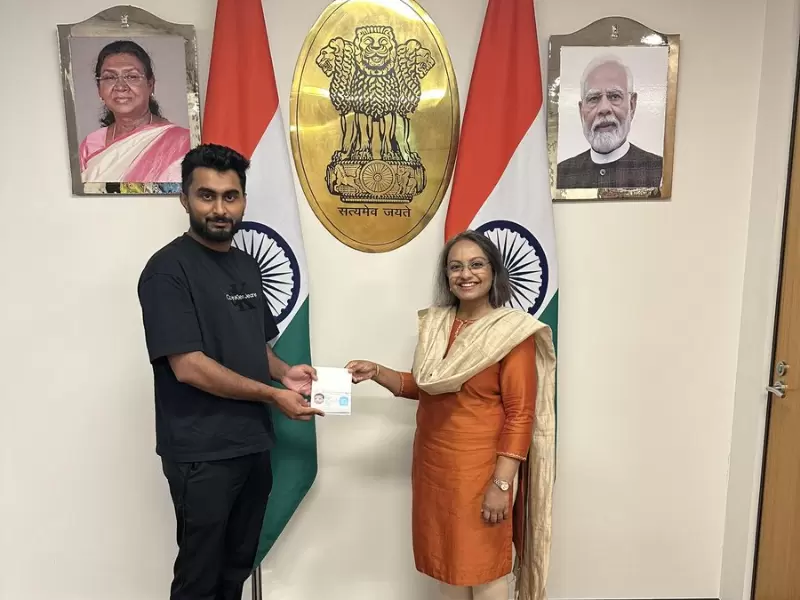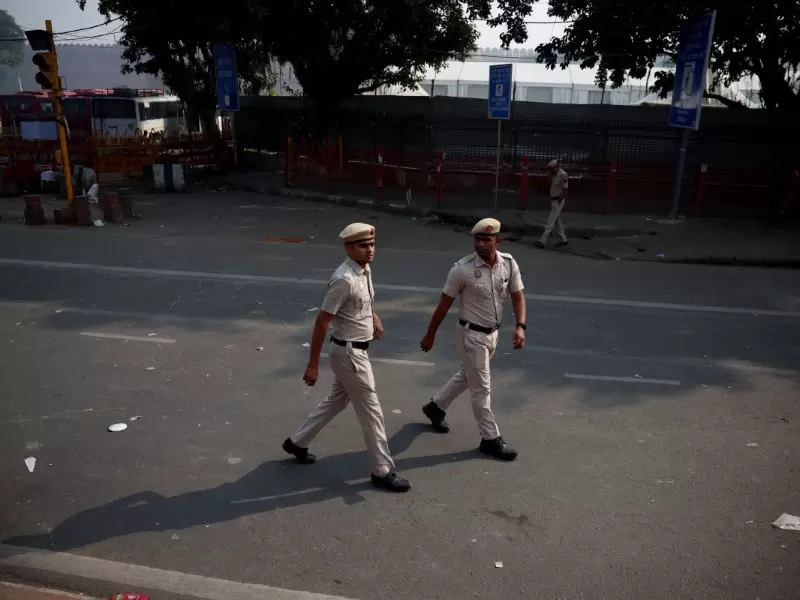India issues first chip-enabled e-Passport in Perth
The launch in Perth marks the start of India’s global rollout of secure, chip-enabled passports aimed at easing international travel for Indian citizens.
 The Consul General of India in Perth, Kajari Biswas hands over the first chip-enabled e-Passport under the Government of India’s Global Passport Seva Programme 2.0. / X (@CGIPerth)
The Consul General of India in Perth, Kajari Biswas hands over the first chip-enabled e-Passport under the Government of India’s Global Passport Seva Programme 2.0. / X (@CGIPerth)
The Consulate General of India in Perth issued the first chip-enabled e-Passport under the Government of India’s new Global Passport Seva Programme 2.0 (GPSP 2.0), marking the global rollout of next-generation passports for Indian citizens abroad.
Announcing the development on X, the Consulate said, “Consul General handed over the first chip-enabled e-Passport under the new Global Passport Seva Programme 2.0 (GPSP 2.0) of the Government of India. This is the next-generation e-Passport, integrating cutting-edge technology to ease international travel.”
Also Read:Indian diaspora in UAE first to experience Global Passport Seva 2.0
Consul General handed over the first chip-enabled e-Passport under the new Global Passport Seva Programme 2.0 (GPSP 2.0) of the Government of India. This is the next-generation e-Passport, integrating cutting-edge technology to ease international travel. pic.twitter.com/3fc1sxgpy4
— India in Perth (@CGIPerth) November 12, 2025
The initiative forms part of the Ministry of External Affairs’ broader Passport Seva Programme 2.0, which aims to create a fully digital and integrated ecosystem for passport issuance and consular services worldwide.
The e-Passport is equipped with an embedded electronic chip containing the holder’s biometric and personal data in encrypted form, significantly enhancing security and helping prevent forgery or identity theft.
According to the Ministry of External Affairs, the e-Passport conforms to the standards set by the International Civil Aviation Organization (ICAO) and will allow Indian citizens to benefit from faster immigration clearances through automated e-gates in several countries.
The government has also upgraded the online application and service portal to enable smoother processing for Indian citizens living abroad. Applicants will be able to upload ICAO-compliant photographs, signatures, and supporting documents through the new system, reducing manual verification and processing times.
Officials said the rollout of GPSP 2.0 for Indian missions overseas began in late Oct. 2025, starting with select consulates, including Perth. Existing passports will remain valid until their expiry, and there will be no change in the fee structure or biometric requirements for now.
The e-Passport initiative brings India in line with more than 120 countries that already issue chip-enabled passports, marking a major step in strengthening document security and simplifying international travel for Indian citizens.
ADVERTISEMENT
ADVERTISEMENT
E Paper
Video



 Malvika Choudhary
Malvika Choudhary





.jpg)





Comments
Start the conversation
Become a member of New India Abroad to start commenting.
Sign Up Now
Already have an account? Login